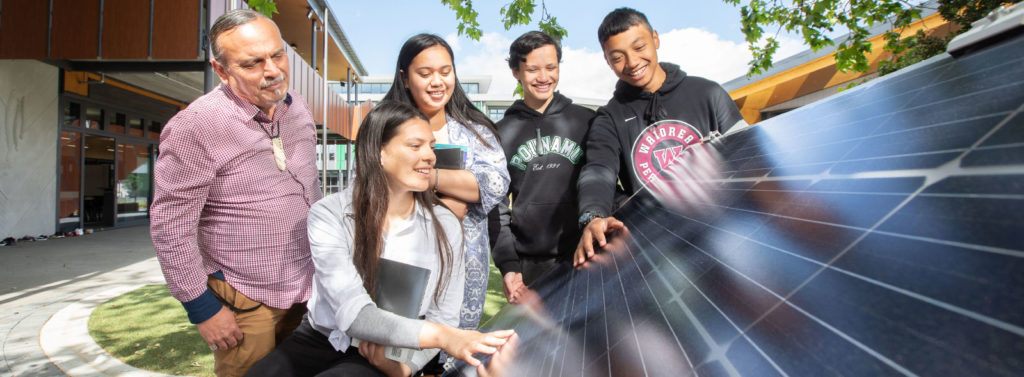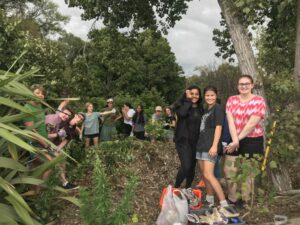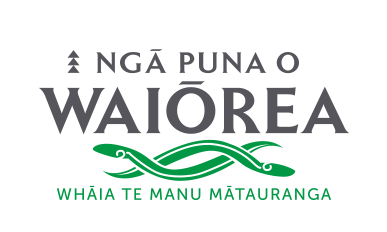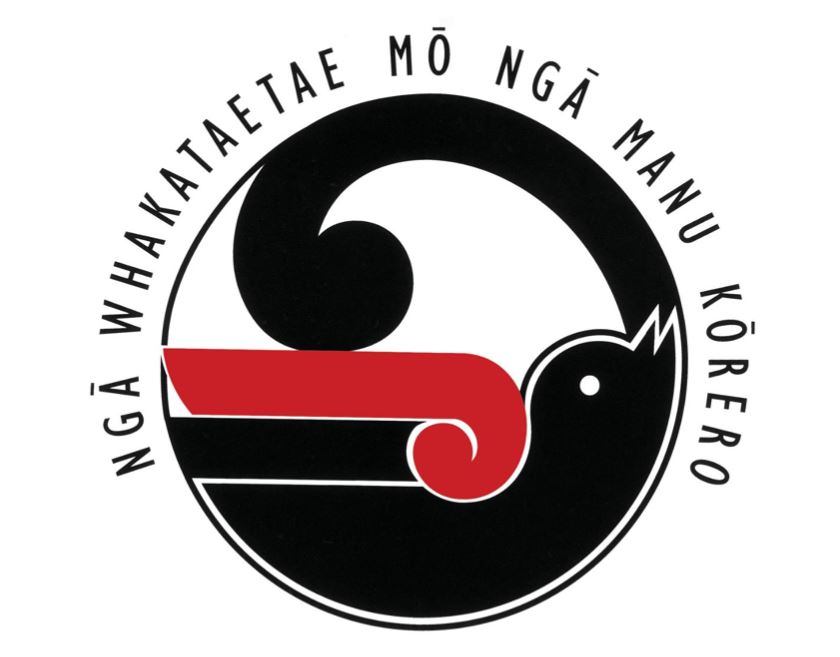2025 marked the 60th celebration year/Matariki celebration of Ngā Manu Korero - Tāmaki Ki Te…

Niki Harré and Charlotte Blythe, School of Psychology, University of Auckland, have published an article featuring Western Springs College – Ngā Puna o Waiōrea’s (WSCW) sustainability journey in the American Journal of Community Psychology, which is a leading international psychology journal.
The sustainable journey at WSCW started over 12 years ago and Niki has been a guiding hand over the entire journey. We would like to wholeheartedly thank Niki and her graduate students for her amazing work and support at WSCW and also acknowledge the significant achievement of being published in the American Journal of Community Psychology.
The article is published with open access which means anyone can download it.
You will find the link to the full article here and here is a link to a summary for sustainability practitioners.
Here are some of WSCW sustainability achievements since 2009: a fully separated waste system and a large worm farm, several green features in our new buildings including solar panels, several sustainability-related student leadership roles with four associated student teams, environmental science options for senior students, a biannual sustainability market and riparian planting for junior students, The Cup Project, several school-wide fundraising efforts to preserve endangered species, and regular eco-weeks, clothes swaps, and bike expos led by our student leaders. WSCW has also hosted the Auckland-wide Green Jam for many years, and our students were amongst the leaders of School Strike 4 Climate in Auckland.

Of particular interest are the 7 Key Features, many of which already existed in the school, which allowed this project to flourish and why it may be a process/kaupapa that inspires others around the globe. The seven features are:
- The school’s openness to innovation and the voices of students, staff and the community
Interviews with students and staff as part of the research showed that WSCW sees students as co-creators of the way the school runs, not just as consumers of education. WSCW was shown to be a true learning community, with the assumption that innovation can come from anyone associated with the school. For example, a teacher described how “student decisions are important [at WSCW]” and that they “are given the opportunity… if you want to start a club you go and start a club….”
There were numerous examples of student suggestions that were picked up and supported by adults, such as a project to stop the use of plastic wrap at the tuck shop. This openness to innovation may have helped the new value of sustainability become embedded at the school.
- The values of Ngā Puna o Waiōrea
The drive toward sustainability was strengthened by the values championed by Ngā Puna o Waiōrea. The natural environment is central to traditional Maori culture, which encourages kaitiakitanga – a strong sense of relationship to, and responsibility for, place. At WSCW kaitiakitanga is enacted by a portion of the school community and observed by others. As one teacher from the English-medium school said: We as kaiako [teachers] are exposed to te reo [the language] Maori every day… From school briefing to karakia [prayers]… and actually what I am learning is that sustainability of the Earth but also of people, is woven through te ao [the world] Maori, like it’s just there, yeah, that’s definitely a huge advantage of us being here at [WSCW] because we’ve got [Ngā Puna o Waiōrea] right with us.
The school’s Kaitiakitanga student leaders were also aware of their role as perceived leaders on environmental issues. One said, “I feel like… the whole world is starting to turn to Indigenous people in terms of how to… [fix this]… we’ve known this stuff for ages.”
- The Sustainability Panel
Since 2009, sustainability has been facilitated by a Sustainability Panel set up by the Board of Trustees. This provides a crucial mechanism for facilitating communication between people with sustainability interests from various parts of the school. The panel includes the Kaitiakitanga and Wises student leaders, teachers and other staff, a Board representative, and supporters from Auckland Council. It is currently chaired by Bridget Glasgow, the school’s Enviroschools coordinator. Panel members recognise their shared purpose and meet regularly. They are also strongly linked to other groups in the school. For example, teachers are linked to all the students in their classes, and students to their friends who are not in the Wises/Kaitiakitanga teams. These links provide numerous opportunities for influence.
The panel focuses on empowering people rather than setting all-encompassing collective goals or expecting members to work on a single project. This has created a wide diversity of projects and encourages participants to bring their strengths to the table. It also encourages critical reflection on what is and is not working. Difficult emotions, fears, and failures are regularly discussed and normalized as part of what it means to be a sustainability advocate.
- Sustainability champions
A number of people provided critical impetus to the school’s sustainability journey. These include members of the research team, the Enviroschools facilitator, dedicated teachers, innovative students, the groundsman who manages the separated waste system, the first Senior Manager sustainability who set up the Wises leadership structure, governance board chairs, and supportive principals.
It is likely that most organizations have potential sustainability champions, but if they are in a hostile environment their efforts will fade away. At WSCW, the efforts of sustainability champions were noticed and their ideas welcomed. Champions also emerged from the growing sustainability culture. For example, the first Senior Manager Sustainability did not come into her role as an experienced sustainability advocate. As she said, “…the people I worked with… all taught me a huge amount [about sustainability].”
- The diversity of contributors to the sustainability journey
The projects initiated by the Sustainability Panel were highly diverse and from different parts of the school. For example changes were made to teaching (e.g. the addition of environmental science options), infrastructure (e.g. the three bin system and solar panels), and the Wises/Kaitiakitanga student leadership portfolios. This diversity helped to extend the reach of the project and make it resilient. Even if something didn’t go well one year, other projects moved ahead. This diversity was not accidental as from the beginning, the project welcomed and attempted to increase the visibility of all sustainability related initiatives.
- Sustainability has become standard practice
Since 2009, sustainability initiatives became standard practice by working their way into essential activities. The three examples of changes to infrastructure, teaching and student leadership given in the previous paragraph show this. Each of these is reproduced year after year because there is waste to be managed, student leadership roles to be filled and classes to be taught. By being part of standard practice, they also bring with them accountability, resources, and provide a base for other activities.
- Regular sustainability events.
The Sustainability Panel, and in particular the Kaitiakitanga and Wises teams generate a considerable diversity of events. For example, in 2009, a project to create wooden waste stations that preceded the current three bin system involved a waste audit, mapping exercise, photography competition, music/dance video, painting, and an eco-day. Each event was designed to appeal to students with different interests. While events don’t usually contribute directly to structural change (the waste station events outlined here are an exception), they help create a flourishing sustainability culture, which is constantly generating new responses to the issues that arise. This is the culture we see at WSCW.

The abstract and key findings are below.
Creating organizations that promote human and ecological flourishing (i.e., sustainability) is a key challenge for contemporary societies. Here, we offer a people-focused systems approach to organizational sustainability based on an action research project conducted at Western Springs College/Ngā Puna O Waiōrea, a bicultural high school in Aotearoa New Zealand. The project ran from 2008 to 2018 and drew on the values and skills of community psychology and environmental education to build what we call a “sustainable social system” (SSS).
In 2018/19, we conducted interviews with 23 key people involved in sustainability efforts at the school and analyzed the minutes of 46 meetings of the school’s Sustainability Panel. We used a complex systems approach to produce a map of the core people, purpose, infrastructure, and activities components and sub-systems in the SSS, as well as its emergent properties of a sustainability culture and identities. We describe the historical trajectory of the SSS and discuss seven features that we consider of particular significance in contributing to its growth and resilience. We then offer steps toward a people-focused SSS led by insiders with sustainability values. These include establishing a democratic and inclusive sustainability network, and attempting to integrate sustainability with the organization’s essential activities.
- The current study offers a people-focused systems approach to promoting environmental sustainability in organizations.
- We describe a case study of a sustainable social system and its 11-year trajectory at a bicultural high school.
- The current study uses complex systems thinking and methodology to map the sustainable social system.
- Findings suggest a democratic process for change designed to empower and connect sustainability advocates.



